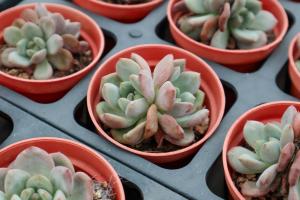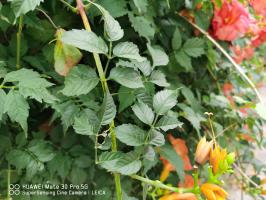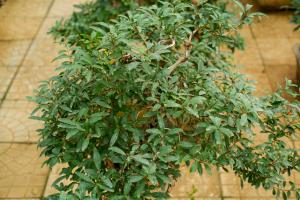Introduction
When it comes to gardening, choosing the right pot for your plant is as important as selecting the right soil, fertilizer, and watering routine. One of the most critical factors that determine the health of your plant is the type of clay you use for your plant pots. In this article, we will guide you through the best clay types you can use for your plant pots.
Terra-cotta Clay
Terra-cotta clay, also referred to as earthenware clay, is a popular choice for plant pots. It is widely used because of its affordability and durability. Terra-cotta clay is sourced from earthen materials and is unglazed or slightly glazed. This type of clay is porous, making it ideal for plants that require good drainage. It also absorbs moisture, which helps prevent overwatering that can lead to root rot. Additionally, terra-cotta clay provides excellent insulation, which protects the plant's roots from extreme temperatures.
Porcelain Clay
Porcelain clay, also known as china clay, is another popular choice for plant pots. Porcelain clay is sourced from pure, refined clay and heated at high temperatures, creating a hard, non-porous material. Porcelain clay plant pots are suitable for plants that require consistent moisture, as they do not absorb moisture like terra-cotta clay. Porcelain clay pots are also ideal for indoor plants as they do not stain or absorb odors, and their smooth surface provides an elegant and stylish look.
Stoneware Clay
Stoneware clay is a type of clay that is usually fired at high temperatures, producing a durable and long-lasting material. It has a unique texture and a wide range of colors and designs that make it ideal for decorative plant pots. Stoneware clay is suitable for all types of plants as its porous nature allows for good drainage, and it also retains moisture, which helps prevent underwatering. Moreover, stoneware is resistant to cracks and breakage, making it an ideal choice for outdoor and indoor plants.
Sandstone Clay
Sandstone clay is a type of clay that is characterized by its rough and porous texture. Sandstone clay is sourced from sedimentary rocks that consist of sand grains and other minerals. Sandstone clay is ideal for plants that require good drainage, as its porous nature allows excess water to escape easily. In addition, sandstone clay provides insulation, protecting the plant's roots from extreme temperatures. Sandstone clay plant pots come in a range of colors, making them an ideal choice for modern interior design.
Conclusion
Choosing the right type of clay for your plant pots can help ensure that your plants thrive. Terra-cotta clay, porcelain clay, stoneware clay, and sandstone clay are all fantastic options and each has its unique properties that can benefit your plants. By considering your plant's needs and your personal style, you can choose the right clay type that suits your gardening needs.

 how many times do yo...
how many times do yo... how many planted tre...
how many planted tre... how many pine trees ...
how many pine trees ... how many pecan trees...
how many pecan trees... how many plants comp...
how many plants comp... how many plants can ...
how many plants can ... how many plants and ...
how many plants and ... how many pepper plan...
how many pepper plan...






























